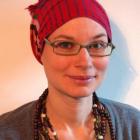
Former IRC Programme Officer
A framework for monitoring sustainable water services has been developed and successfully tested in three districts in Ghana. The framework supports the transition from a focus on counting water systems to monitoring services provided and sustained and is now being scaled up to 8 of the country's... Read more...
Triple-S Uganda and the Ministry of Water and Environment reviewed and updated the District Implementation Manual (DIM)—a sector document that sets standards and guidelines for water sanitation and hygiene activities at decentralised level. Read more...
Triple-S (Sustainable Services at Scale) has led a process of learning and innovation to improve rural water service delivery in Ghana and Uganda. Each experiment has documented, results and recommendations shared with stakeholders in the two countries. In addition, the progress on the innovation... Read more...
In Ghana and Uganda, Triple-S has run a range of experiments to improve water service delivery. Taken together, these experiments were expected to contribute to the sustainability and quality of rural water services and to build sector capacity for future innovation and informed policy making. Read more...
This Triple-S experiment sought to improve the reliability of water services in Ghana through the application and testing of an SMS (short message service) module for reporting hand pump breakdowns, linking with Area Mechanics and spare parts outlets, and ordering and paying for spare parts. The... Read more...
It's hard to predict what impact investments and innovations in the water sector will have on citizens' access to services. Understanding underlying mechanisms and potential bottlenecks of change can help decide how and where to invest resources, while also giving a more realistic picture of the... Read more...
Behaviour change lies at the heart of the BRAC WASH programme, which reaches half the rural population of Bangladesh, using an equity-based approach and sustained intensive interaction, based on 'selling not telling'. Read more...
The BRAC WASH programme covers half of Bangladesh and measures quality of change outcomes as well as programme outputs. Read more...
This is how the BRAC WASH programme (2006-2015) is achieving lasting behaviour change and transforming hygiene, sanitation and water services with half the rural population of Bangladesh, using an equity-based approach and sustained intensive interaction. Read more...
Water, sanitation and hygiene (WASH) are essential to daily life and overall development, but, they are often not the top priority of the media. IRC and RNTC joined hands to train journalists and communications specialists how to tell compelling stories about WASH. Read more...
Triple-S has been leading a process of active innovation and experimentation in Ghana (as well as in other countries). This involves running a number of experiments (five in Ghana and seven in Uganda) spanning the range of areas where innovative approaches to current challenges have been identified. Read more...
Governments, civil society and the private sector need to work together to make water and sanitation services available to everyone. IRC's event provided an opportunity to discuss how taxes can complement trade and tariffs and to learn from an innovative health insurance model in Africa. Read more...
The ASTRA decision support tool aims to help mitigate the effects of arsenic and salt contamination of water in Bangladesh. the tool stimulated lively discussion at the 37th WEDC Conference. Read more...
Public finance- money derived from taxation- is critical for achieving water, sanitation and hygiene for everyone forever. But how do we get governments to prioritise it? What should it be used for? And how can we get it flowing to local levels? WSUP, IRC and Trémolet Consulting will be exploring... Read more...
At the 2014 The Water and Health Conference, IRC will share experience from our work on water service monitoring, on aid effectiveness and make a case for mobilising public finance for water sanitation and hygiene. Read more...
A new online open source monitoring system provides quantitative and qualitative data to guide decisions and plans for BRAC WASH. Read more...
Over the years, IRC's focus has evolved from supporting community management, to working on a 'whole system' approach to sector change. In this second blog in our series on a learning and adaptive sector we chart IRC's evolution and explore the central role of collective learning for delivering... Read more...
Is aid and trade the answer to "Dead Aid"? Is it just tied aid in disguise? Does it make sense in the water sanitation and hygiene sector? IRC invited a group of stakeholders from the Dutch WASH sector to The Hague on 17 September 2014 to discuss all this and more. Join the discussion! Read more...
Can the new trade-based approach help ensure that every person in the world enjoys safe water, sanitation and hygiene, now and forever? IRC's event The Limits of Aid, the Future of Trade? will shed light on opportunities and challenges of the aid-and-trade agenda towards ensuring that everyone can... Read more...
In 2013, Dutch development policy shifted from aid to trade as the primary engine of sustainable, inclusive growth. In this interview, Mr. Christophe Leger of Vergnet Hydro reflects on the value of partnerships between the private sector and non-governmental organisations for building sustainable... Read more...